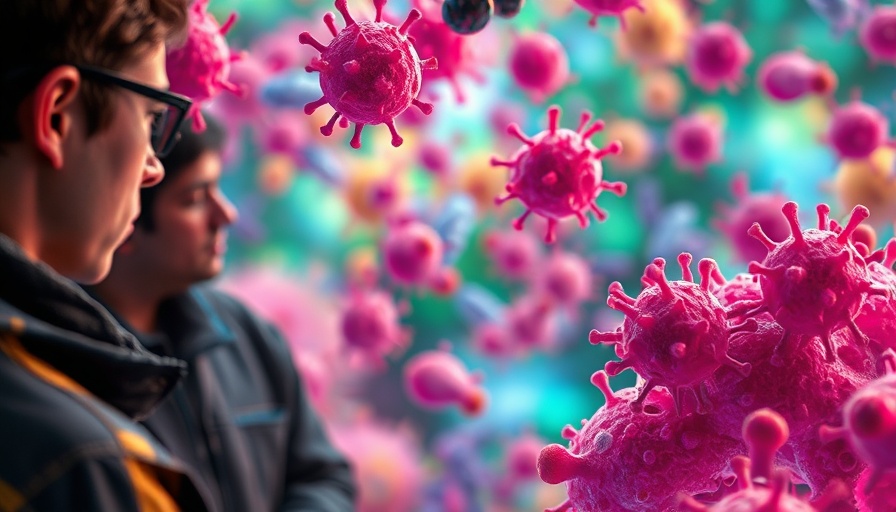
Understanding Probiotic Intolerance: Unpacking a Paradox
Probiotics are often hailed as the superheroes of gut health, but like any good story, there's more than meets the eye. While beneficial bacteria such as Bifidobacterium and Lactobacillus are supposed to promote wellness, they can sometimes provoke unexpected reactions within the body. In a recent podcast hosted by Dr. Justin Marchegiani and featuring Rob Edwards, listeners were introduced to the concept of probiotic intolerance—and how a lack of balance in our gut flora could lead to adverse health effects.
The Role of Histamine and Gut Balance
Histamine, a naturally occurring compound in the body, plays a critical role in various digestive processes. However, an imbalance in histamine levels can trigger symptoms like brain fog, skin issues, and digestive discomfort, particularly when consuming probiotics. Dr. J and Rob highlight that extensive past antibiotic use or exposure to herbicides like glyphosate can severely disrupt the gut microbiome's equilibrium, exacerbating the likelihood of probiotic intolerance.
Common Symptoms and Their Underlying Causes
The symptoms associated with probiotic intolerance can often mimic other health issues, making it challenging to connect the dots. Symptoms such as bloating, gas, or fatigue may be mistaken for regular digestive woes, leading individuals to overlook the potential link to recent probiotic intake. Recognizing these signs can empower both consumers and healthcare providers to investigate underlying gut health issues with greater diligence.
Steps Toward Restoring Gut Health
Addressing probiotic intolerance begins with understanding one's unique gut flora requirements. Busy lifestyles that often lead to unhealthy dietary choices can create significant imbalances. Here are a few actionable insights to manage your gut health better:
- Consult with a Naturopathic Doctor: Seeking the guidance of a naturopathic professional can provide tailored recommendations based on individual health assessments.
- Gradually Introduce Probiotics: Rather than jumping into high doses of probiotics, starting with lower amounts can help the body acclimate without overwhelming it.
- Avoid Trigger Foods: Some individuals may discover that certain foods exacerbate their symptoms. Keeping a food diary can aid in identifying these triggers.
The Importance of a Holistic Approach
The drive towards health and wellness extends beyond just finding the right supplements or probiotics. Lifestyle factors—including diet, stress management, and physical activity—collectively play a vital role in gut health. Engaging with community health events or wellness workshops can further enhance one’s understanding of a balanced lifestyle. After all, true wellness is cultivated through a holistic perspective rather than a quick-fix mentality.
Final Thoughts on Probiotic Health
As more individuals embark on their health journeys, it's essential to approach probiotic use with mindfulness and awareness of one's unique biological makeup. The insights from Dr. J and Rob serve as a timely reminder that not all probiotics are suitable for everyone. In the quest for optimal health and wellness, personal exploration and education must guide our choices.
If you’re facing challenges with digestive health or considering probiotics in your wellness routine, don’t hesitate to consult with a healthcare provider. They can help tailor an approach specifically suited to your needs, guiding you towards a balanced and healthier gut.
 Add Row
Add Row  Add
Add 




 Add Row
Add Row  Add
Add 


Write A Comment